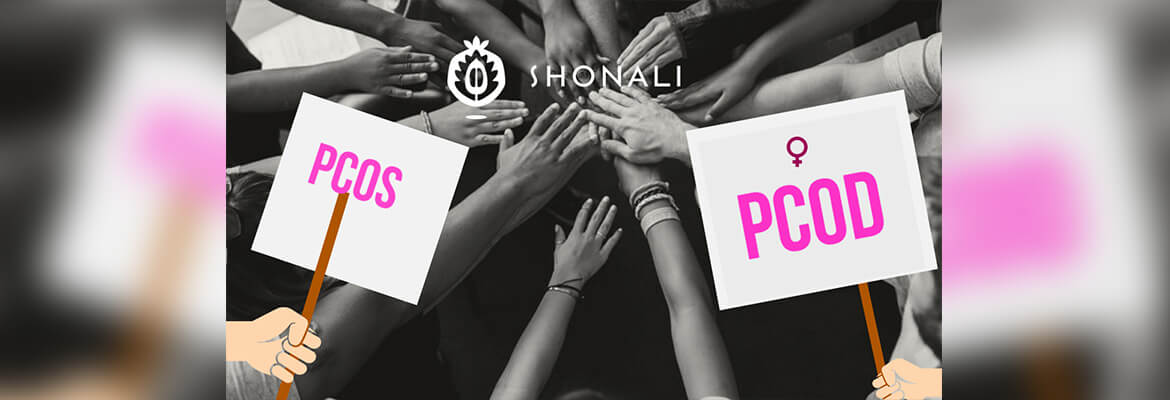Polycystic Ovary Syndrome (PCOS)
What are the possible causes, and how to treat it holistically?
The cause of PCOS is not known, but most women who have PCOS have high androgens (male hormones) and high insulin. In most cases, there is a strong link between ovarian cysts and consumption of excess sugar and refined carbohydrates in the diet. These foods cause insulin levels to spike, which stimulate the production of androgens that is the male hormones from the ovary, which the leads to ovarian cysts. I get at least 2 calls a week for issues of PCOS and usually among young women aged anywhere between the ages of 16 going up to their early 40’s. They come because of their skin and hair growth sometimes even on the face, and almost all of them have insulin resistance. I have worked with many to clear this issue up, by simply teaching them how to swap their bad carbs for good ones; and putting a diet in-place that helps them to stay healthy and bring the sugar response under control. If cysts to get larger in size, then you may consider surgery as an option. Some women could even develop cysts post their 30s, and some may or may not cause any issue. If they persist and increase in size causing pain, then that’s the time your gynaecologist needs to decide what to do.
An alternative treatment for ovarian cysts is natural progesterone, monitored by your gynaecologist. The signalling mechanism that shuts off ovulation in one ovary each cycle is the production of progesterone in the other. If this happens then LH (luteinizing hormone) levels are inhibited and both ovaries think the other one has ovulated, so regular ovulation does not occur (same effect as the contraceptive pill).
Most women manifest symptoms differently but also share symptoms these could range from –
- Excessive hair on chin, upper lip, breasts
- Inflammation
- Difficulty in losing weight due to high insulin levels
- Hair fall due to excess androgens
- Anovulatory cycles
Medications that may be recommended by your doctor
- To regulate your menstrual cycle, your doctor may recommend birth control pills
- To regulate your menstrual cycle your doctor may also recommend progestin therapy
- To help you ovulate your doctor may recommend oral anti-estrogen medication in the first part of your menstrual cycle
- A popular medication is metformin which is for type 2 diabetic patients to improve insulin resistance.
PCOS will show up in different symptoms across ages for e.g., in prepuberty it could show up as early periods, early pubic hair, acne, insulin sensitivity or weight gain. In adolescence it could show up as irregular periods, weight gain, excessive facial hair. It does affect fertility in women, so conception maybe difficult; infertility amongst women with PCOS is very common. If women do get pregnant then preeclampsia and gestational diabetes is common. While going through perimenopause, weight gain, inflammation, diabetes, thyroid, heart disease is also commonly faced in women who have PCOS. Also, PCOS is also associated with hormone-dependent cancers like endometrial, breast or even ovarian cancer.
Here is what you can do on a more holistic level –
Avoid –
- Sugar
- Dairy and dairy products
- Refined white flour
- Coffee and Indian tea
- Colas, sodas, sugary beverages
- Processed foods
- Sweeteners
- Refined oil
Add the following –
- Make healthier food choices including high fiber foods via vegetables, whole grains, fruits, nuts, seeds lentils, legumes and lean protein (if non-vegetarian). Staying plant-based always helps with PCOS.
- Healthy fats via cold pressed oils and foods (avocado, nuts and seeds).
- Cinnamon has been proved to have a positive effect on insulin, you can make a water infused with cinnamon and sip it throughout the day.
- Omega -3 fatty acids out of cod liver oil or chia and flax seeds will improve irregular periods.
- Evening primrose oil will help with cholesterol and period pain and irregular menstruation decreasing oxidative stress.
- Turmeric has been shown to improve immunity, is anti-inflammatory and help with insulin resistance.
- Add Vitamin D.
- Minimize exposure to xenoestrogens: specially plastic (BPA-bisphenol A, an industrial chemical used to make plastic) and other environmental toxins.
On a lifestyle front –
- Deal with stress via meditation, journaling, affirmations and dance.
- Get your weight done, if you are overweight.
- Exercise — high intensity: strength training, functional.
- Also add yoga and pranayama.
- Use bodywork therapies: craniosacral therapy, acupuncture and acupressure.
- If you have excessive hair-growth then laser treatments, electrolysis which was more an old form of treating excessive har-growth is recommended.

